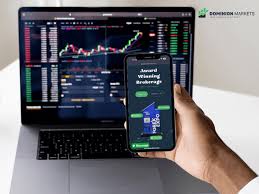
What is Forex Trading?
Forex trading, or foreign exchange trading, is the process of buying and selling currencies on the global marketplace. The forex market is the largest and most liquid financial market in the world, where currencies are exchanged at current or determined prices. The market operates 24 hours a day, five days a week, allowing traders to participate at any time. For more information and insights, you can visit what is forex trading https://acev.io/.
How Does Forex Trading Work?
At its core, forex trading involves the exchange of one currency for another. Currencies are traded in pairs, with one currency being quoted against another. For example, in the EUR/USD pair, the euro is the base currency, and the US dollar is the quote currency. If the exchange rate is 1.20, it means 1 euro can be exchanged for 1.20 US dollars. Traders aim to profit from fluctuations in these exchange rates by buying low and selling high, or selling high and buying low.
The Participants in the Forex Market
The forex market consists of various participants, including:
- Central Banks: These institutions manage a country’s currency, money supply, and interest rates. They play a crucial role in influencing exchange rates and implementing monetary policy.
- Commercial Banks: Large banks that facilitate currency trading for their clients and engage in speculative trading themselves.
- Corporations: Businesses involved in international trade often need to exchange currencies to pay for goods and services in different countries.
- Retail Traders: Individual traders who participate in the forex market through online brokers, aiming to profit from currency fluctuations.
- Institutional Investors: Hedge funds, pension funds, and other large institutions that engage in currency trading for investment purposes.
Understanding Currency Pairs
In forex trading, currencies are quoted in pairs. The first currency in the pair is known as the base currency, while the second currency is the quote currency. For example, in the EUR/USD currency pair:
- Base currency: Euro (EUR)
- Quote currency: US Dollar (USD)
When trading currency pairs, you are essentially betting on the value of the base currency relative to the quote currency. If you believe that the euro will strengthen against the US dollar, you would buy the EUR/USD pair. Conversely, if you anticipate that the euro will weaken, you would sell the pair.
Types of Forex Trading Strategies
Traders employ various strategies to maximize their potential profits in the forex market. Some of the most common strategies include:
- Scalping: A short-term strategy that involves making numerous trades throughout the day to capture small price movements.
- Day Trading: This strategy involves buying and selling currencies within the same trading day, ensuring that all positions are closed before the market closes.
- Swing Trading: Traders holding positions for several days or weeks, aiming to profit from price swings in the market.
- Position Trading: A long-term strategy that focuses on fundamental analysis and involves holding positions for months or even years.
The Role of Leverage in Forex Trading
One of the defining characteristics of forex trading is the ability to use leverage. Leverage allows traders to control a larger position with a smaller amount of capital. For example, with a leverage ratio of 100:1, a trader can control a position of $100,000 with only $1,000 in their trading account. While leverage can amplify profits, it also increases the potential for losses, making risk management crucial for traders.
Risks Involved in Forex Trading
Forex trading, while lucrative, carries inherent risks. Some of the main risks include:
- Market Risk: The risk of loss due to unfavorable price movements in the currency market.
- Leverage Risk: While leverage can increase potential gains, it also magnifies losses, which can account for a significant portion of a trader’s capital.
- Interest Rate Risk: Changes in interest rates can affect currency values and therefore impact a trader’s positions.
- Political and Economic Risk: Global events, such as political instability or economic downturns, can lead to significant market volatility.
Choosing a Forex Broker
Selecting the right forex broker is crucial for successful trading. When choosing a broker, consider the following factors:
- Regulation: Ensure the broker is regulated by a recognized financial authority, which provides a level of safety for your funds.
- Trading Platform: A user-friendly and reliable trading platform is essential for executing trades efficiently.
- Spreads and Fees: Look at the spreads and fees associated with trading to understand the cost of making trades.
- Customer Service: Good customer support can assist traders with any issues or queries that may arise.
Conclusion
Forex trading is an exciting and potentially profitable venture for those willing to learn and develop their skills. Understanding how the forex market operates, the factors influencing currency prices, and the different trading strategies can significantly enhance your trading journey. As with any investment, a robust risk management plan and continuous learning are essential to long-term success in the forex market.